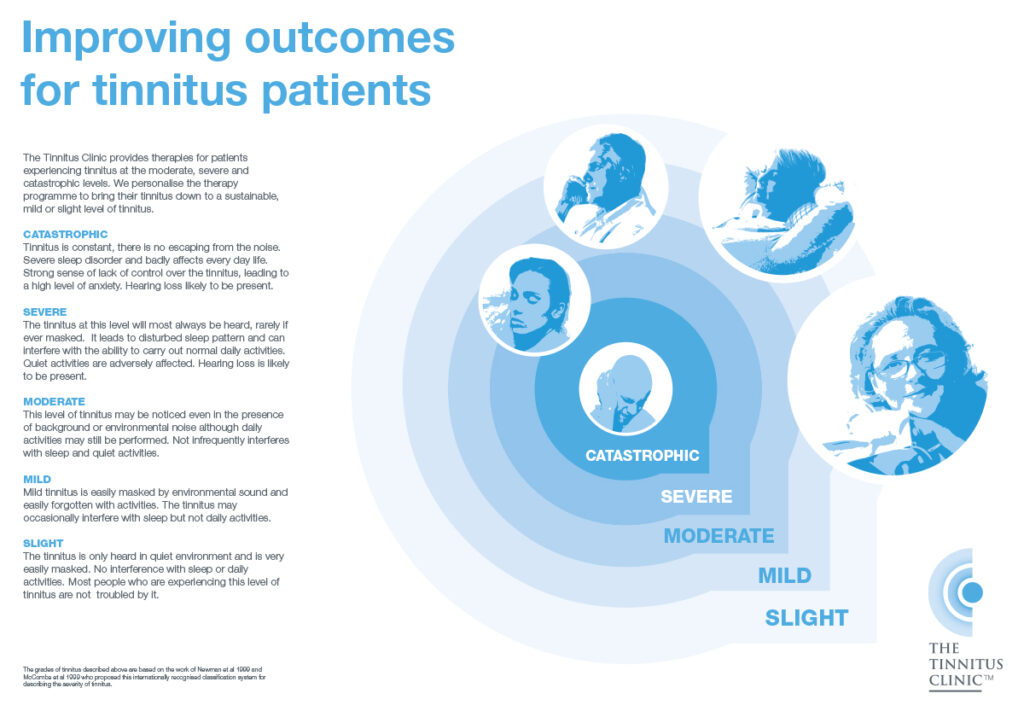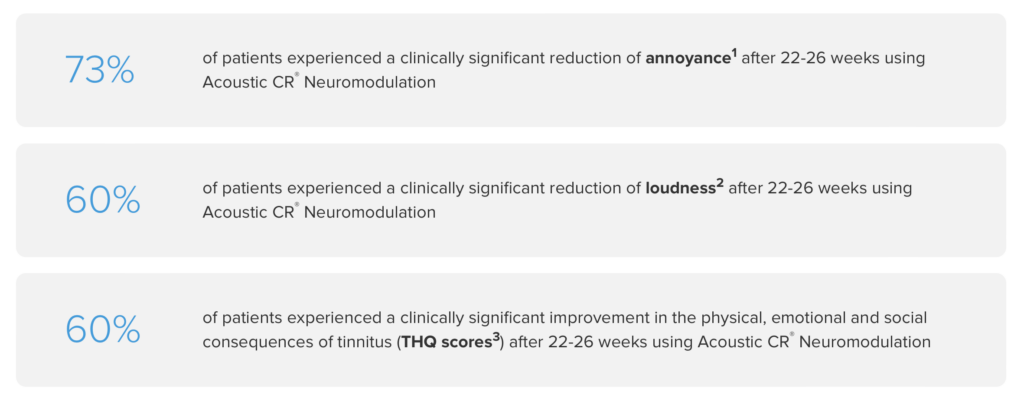A new patient study on Acoustic CR® Neuromodulation, conducted by our Chief Audiologist Mark Williams and colleagues from the UK and Germany, has been published in the international peer reviewed journal, Frontiers in Neurology.
The paper, entitled Acoustic CR® Neuromodulation therapy for subjective tonal tinnitus: a review of clinical outcomes in an independent audiology practice setting, was authored by Mark Williams and Nitesh Patel of The Tinnitus Clinic and Christian Hauptmann of the Julich Research Center, Germany. Mark also provided an academic poster presentation of this study, at the end of last year, for the British Academy of Audiology Conference in Bournemouth.
The study focused on 66 patients, aged between 31 and 76 years, who were receiving Acoustic CR® Neuromodulation therapy for the treatment of tinnitus. The majority of patients taking part in this study had already undergone unsuccessful structured tinnitus therapy elsewhere. 50% of the patients had severe or catastrophic levels of tinnitus.

The clinicians found that, two-thirds of the way through the treatment programme (at 22-26 weeks), the majority of the patients were already experiencing significant reductions in the loudness/annoyance of the tinnitus symptoms and improvements in their quality of life. These changes are detailed below.

Studies in Germany and in-clinic experience at The Tinnitus Clinic in the UK have also revealed further and sustainable improvements in tinnitus annoyance and loudness after 26 weeks.
If you are interested in finding out more about this innovative treatment for tinnitus, see the Acoustic CR® Neuromodulation section of our website, or call the Clinic on 0203 597 4988.
1 + 2. The degree of discomfort caused by tinnitus was evaluated using an internationally recognised (Visual Analogue Scale – VAS) method of determining the loudness of a patient’s tinnitus and the level of annoyance that it causes.
3. Another measure of the effect of tinnitus is the Tinnitus Handicap Questionnaire (THQ) which serves to assess the social, emotional and behavioral consequences of experiencing tinnitus and how this state may change over time.




